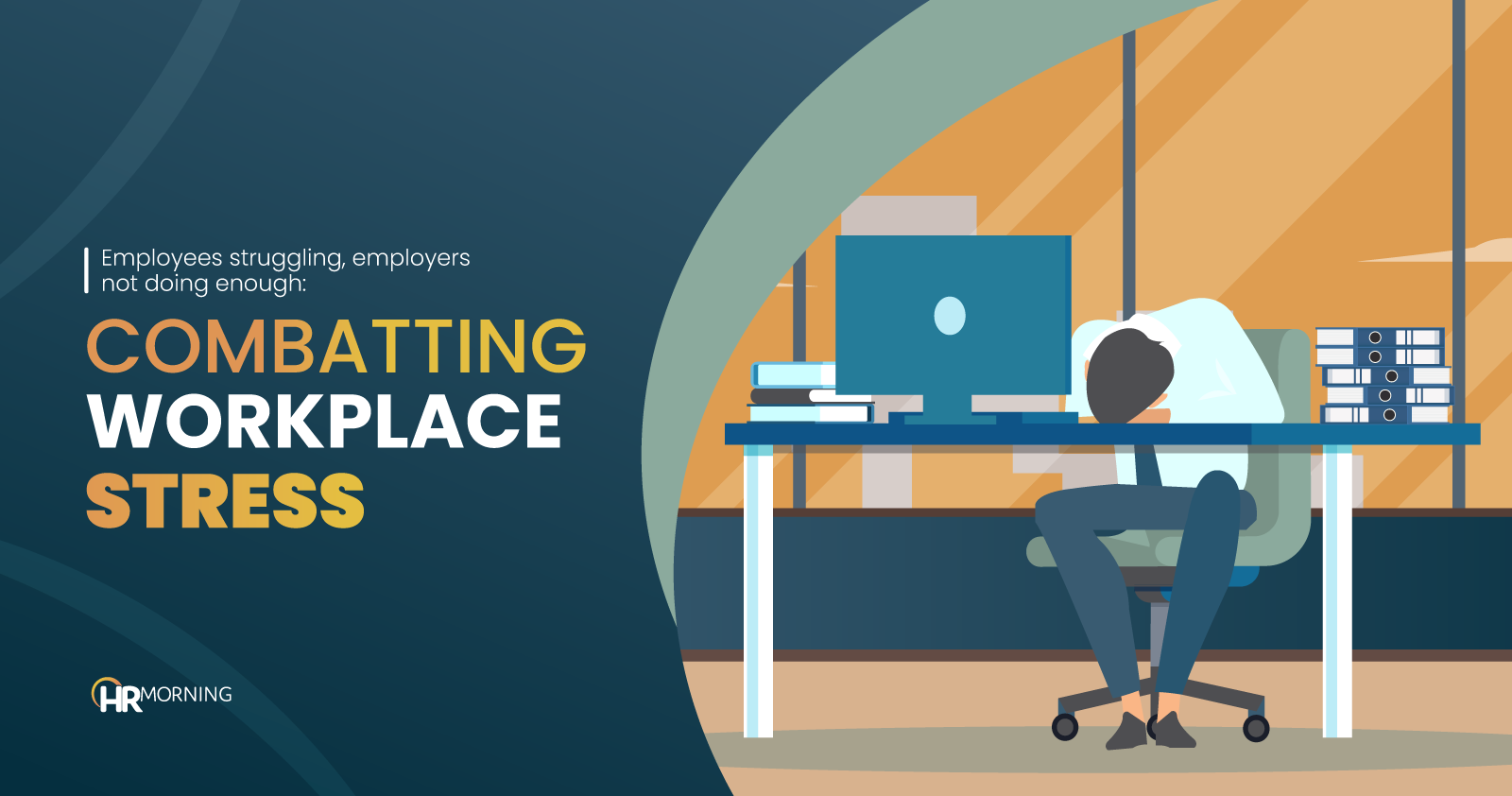Workplace stress is higher than ever – and employees don’t think employers are doing enough, according to a recent report from Robert Walters.
Of course, any workplace comes with stress, with employees striving to meet deadlines and do their best work.
But workplace stress is higher than ever, according to a Gallup report, signaling a problem that can lead to decreases in employee productivity, engagement and well-being. Left unaddressed, chronic workplace stress can lead to turnover, burnout and absenteeism.
Workplace stress is on the rise
Robert Walters’ report found that three in five employees (60%) have suffered from workplace stress this year and the same number report that it has negatively impacted their mental health. Over a third (34%) reported that they feel symptoms of stress “very often.”
The report also found:
- 45% of professionals say concerns over job stability are the biggest trigger for workplace stress
- 62% don’t think employers are doing enough to help combat stress at work – despite U.S. employers increasing spending on wellness initiatives since the pandemic, and
- 45% of professionals say it is up to senior leaders and HR to manage workplace stress
Some of the main causes of stress that respondents reported included:
- Concerns over job stability
- Pressure from management
- Lack of a pay raise, and
- Taking on a heftier workload this year.
Action steps HR can take today
The report shows that workplace stress is on the rise – but only 14% of workers believe employers are doing enough.
“U.S. employers spend an estimated $200-$500 per employee on wellness initiatives & benefits every year – but our survey indicates they may only be applying a Band-Aid,” Peter Milne, Managing Director of Robert Walters North America, said in a press release. “Employers must strike the balance between not breaking the bank or piling pressure onto managers to solve workplace stress but still being proactive and listening to the needs of their employees.”
Here are three action steps HR can take today to help workers combat stress:
- Help workers address stress in other areas of their lives by providing financial, mental health and other types of support
- Ensure managers set attainable and reasonable deadlines, and
- Educate employees on signs of chronic stress and management tactics.


